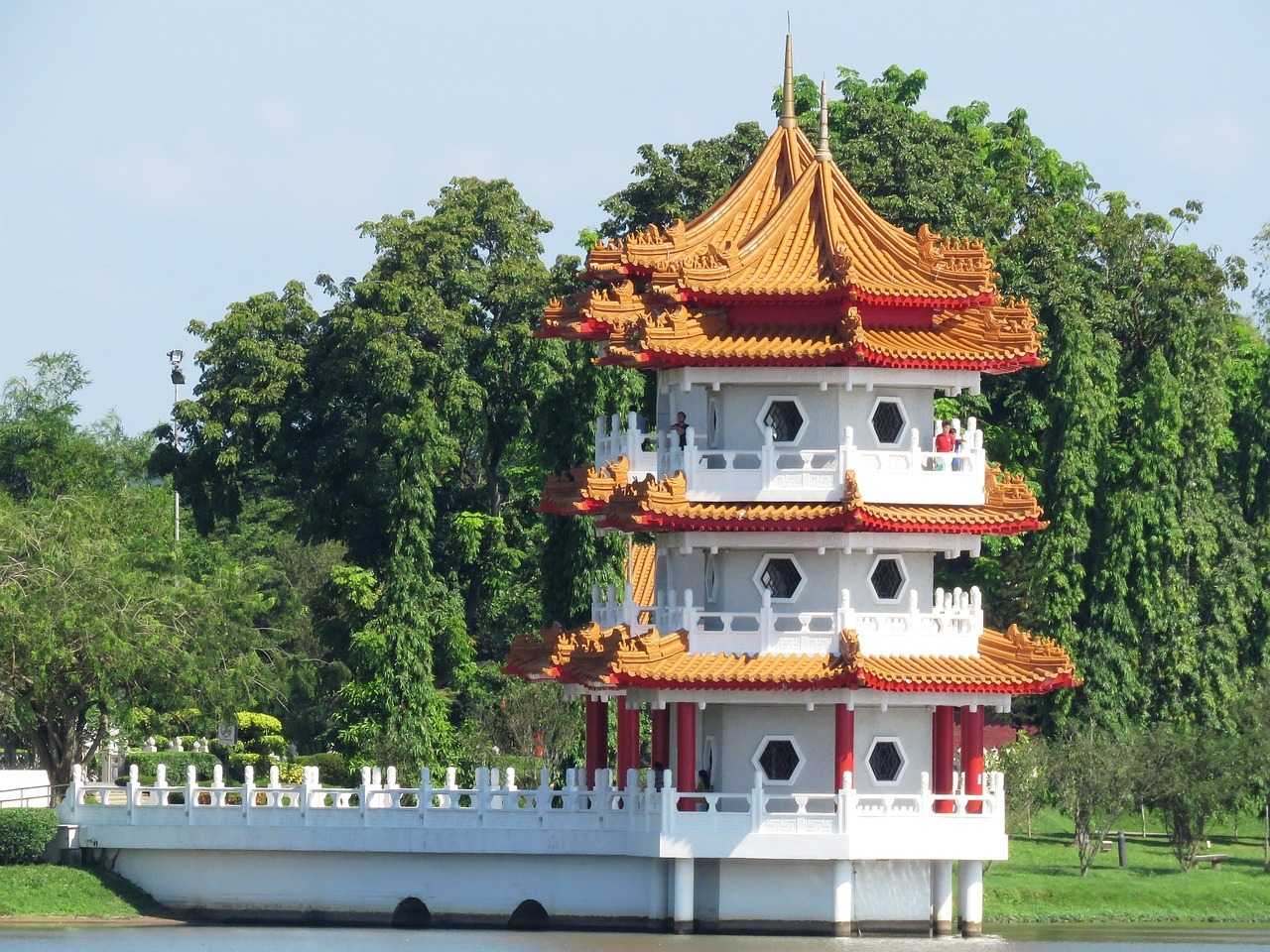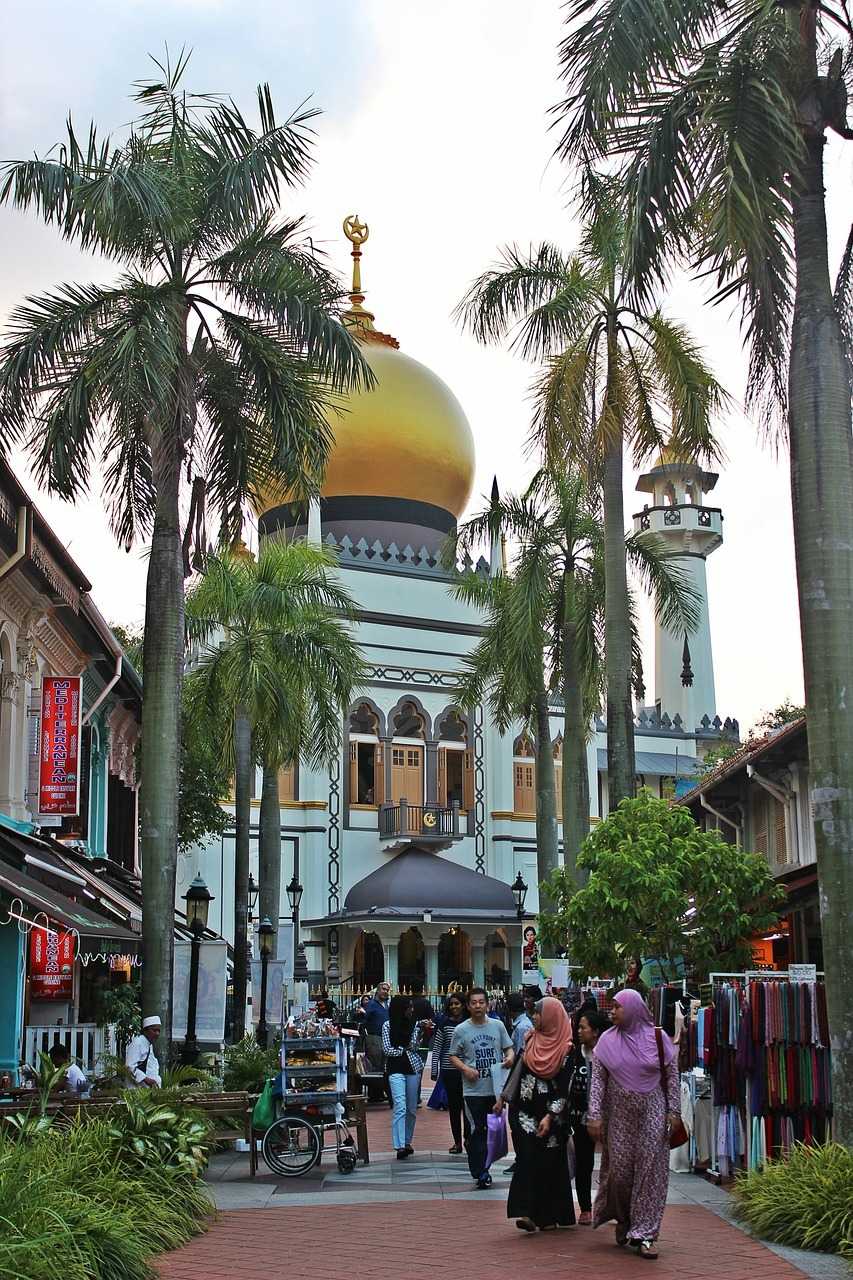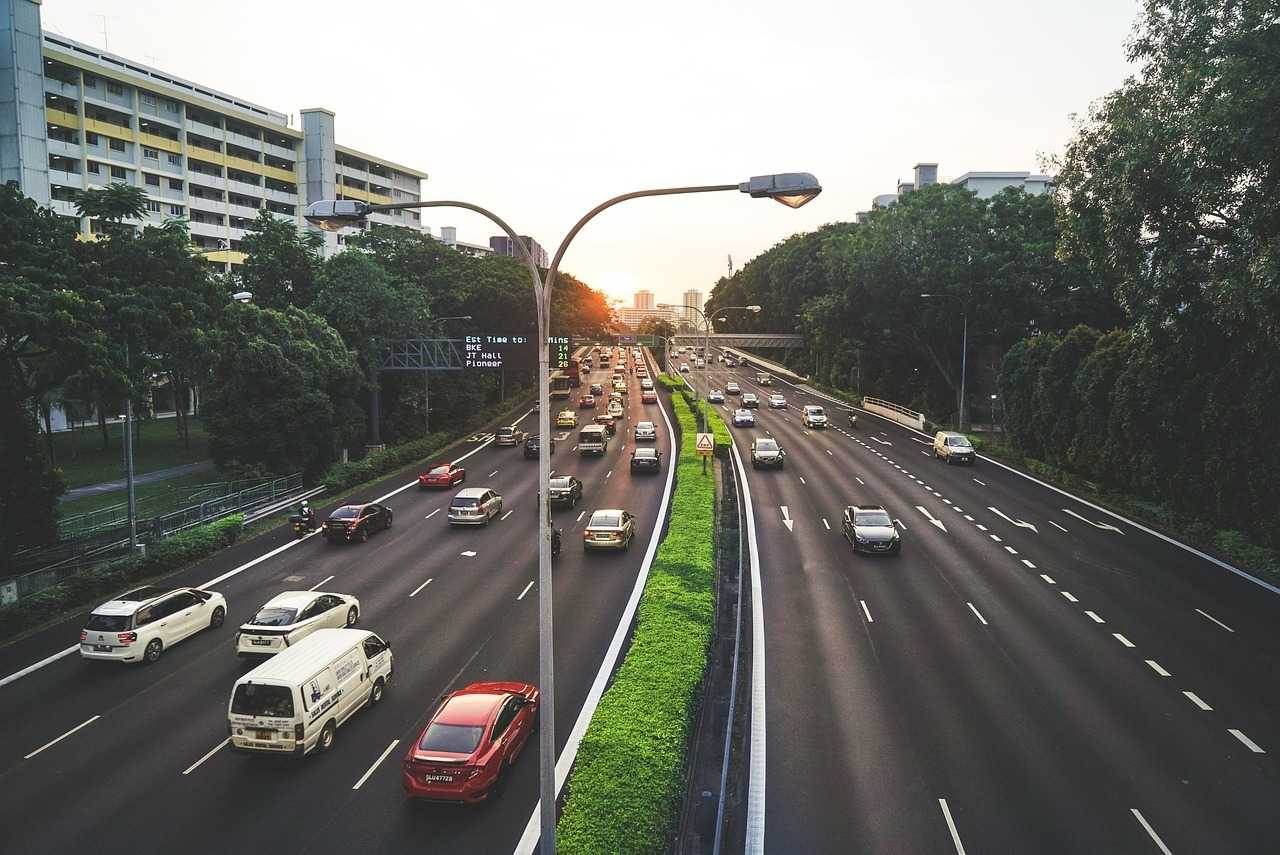What is it like to live in Singapore? For some, Singapore is primarily an opportunity to climb the career ladder or an opportunity for luxury. No matter the reasons for your move, this section will provide you with everything you need to know about living in Singapore — from public transportation and safety to knowing where to shop, eat, and sleep.
Advertisement
Jump right in:
- Pros and Cons of Living in Singapore
- Is living in Singapore expensive?
- Where to live in Singapore Regions explained
- Culture and social etiquette
- Is Singapore a good place to raise children?
- What is it like being a woman in Singapore?
- Is Singapore a safe city to live in?
- What is the shopping scene like in Singapore?
- What is public transport like in Singapore?
- Driving in Singapore
- Public holidays
- Main embassies
Advertisement
Why you'll love InterNations in Singapore
and countless possibilities for fun and friendship!
Advertisement
Advertisement
Pros and Cons of Living in Singapore
As with moving to any big city, there are many pros and cons of living in Singapore. We’ve compiled some key benefits and disadvantages below.
Pros
- No language barrier: If you speak English or Mandarin, or want to improve your skills in these languages, they are two of the official four state languages of Singapore. All public signs are in English, and it’s the main business language.
- Easy to travel: Changi Airport is a transport hub for Asia, allowing you to explore the continent at relatively inexpensive prices.
- Modern and efficient: Singapore is a comfortable city to live in. Its good infrastructure, schools, and healthcare system make it a pleasant place for expats of all ages to reside.
- Tax system: The taxation system in Singapore is considered generous. So although Singapore is an expensive country to live in, it’s relatively easy for many expats to experience a high quality of life.
- Cultural diversity: The city-state has an incredible mix of people and extensive cultural diversity. Tolerance is promoted and expats from a huge range of backgrounds feel comfortable calling Singapore home.


Cons
- Life in a rush: Living in Singapore comes with all the trappings of a hectic urban lifestyle, making it difficult to lead a laid-back life. Expect people to be in a rush and generally busy.
- Expensive housing: Buying and renting property is very expensive. It’s also difficult to purchase certain property types unless you’re a Singapore citizen or permanent resident. See our housing section for more information.
- Weather: Singapore doesn’t have very distinctive seasons. It can be difficult for expats to adjust to the hot and humid weather all year round.
- Employment & visas: Employment visas are tied to your job. If you lose your job and your employment pass is cancelled, you have 30 days to find a new job or leave the country.


Is living in Singapore expensive?
Singapore is one of the most expensive cities globally, with high living and housing costs. On average, for a family, it’s common to spend around 12,500 USD per month including rent. For a single person, monthly expenses can reach as high as 5,000 USD including rent. For comparison, Singapore is 30% more expensive than Paris and 170% more expensive than Beijing, including the price of rent.
| Local currency | USD | |
Studio apartment | 3,000–5,000 SGD | 2,250–3,700 USD |
Small family home | 5,000–8,000 SGD | 3,700–6,000 USD |
Utilities | 150–300 SGD | 110–220 USD |
Public transportation | 128 SGD | 96 USD |
Mobile phone & internet | 60–75 SGD | 45–55 USD |
Meal at a restaurant | 15–20 SGD | 11–15 USD |
Groceries | 300–500 SGD | 225–380 USD |
International school tuition | 30,000–50,000 SGD | 22,500–37,500 USD |
Where to live in Singapore? Regions explained
Central Region: This is the center of Singapore; it includes areas like Orchard, Marina Bay, River Valley, and Bukit Timah. It’s close to the CBD (Central Business District), top schools, and high-end shopping and dining. Housing here is expensive, with luxury condos and landed properties. Ideal for professionals and expats who want to live close to work and the city’s main attractions like the Singapore Botanic Gardens.

East Region: The East includes places like Bedok, East Coast, Changi, and Tampines. It’s known for its relaxed vibe and is popular with families who enjoy a more laid-back lifestyle and outdoor activities. It’s also densely populated, has beaches, and is home to Changi airport. There’s a good mix of public and private housing.

North Region: Areas like Woodlands, Yishun, and Sembawang offer quiet neighborhoods with lots of space and greenery. It’s the most affordable region for housing, but it’s far from the center, meaning longer commutes. This area suits expats looking to save on rent.
West Region: This region includes Jurong, Clementi, and Bukit Batok. Home to many malls, schools, and parks, it’s popular among students. Housing is reasonably priced, and transport links are strong.

North-East Region: Places like Serangoon, Punggol, and Hougang are newer and very family friendly. These areas are well connected by MRT and have modern housing options. With a good balance between cost and convenience, they’re perfect for young families and first-time expats. For a more detailed overview of housing in Singapore you can check out our guide
Culture and social etiquette
Singapore is a popular expat destination because of its mix of cultures. The country’s population is around 74% ethnic Chinese, 13% ethnic Malay, and 9% ethnic Indian. This results in a wide range of South and East Asian cultures and religions being represented at a national level. This diversity comes with its own etiquette that expats must learn to navigate.
Quick tips
- Be deferent and polite to those senior to you. Singaporeans rely on indirect communication to remain polite. This covers body language, expressions, and tone of voice, as well as listening closely to others.
- Speaking loudly can be seen as being rude, as is maintaining eye contact for too long.
- People may avoid answering a question with “no.” If someone hesitates or seems to give you an indirect answer, they might be trying to refuse your offer without offending you.
- Pointing with just your index finger is impolite. Use your whole hand or head to gesture.
- It’s disrespectful to touch someone’s head.
- It’s respectful to remove your shoes when entering someone’s home.
- Never give a gift to a Singaporean official, even if you’re dining together. This can be perceived as bribery, a very serious offence.
- Don’t cut the line, even if others do. If an elderly person skips ahead, stay calm and respectful, as elders are highly respected and confronting them is frowned upon.
- Singapore is relatively conservative when it comes to public displays of affection. While kissing in public is not illegal, any act that’s deemed offensive or indecent can be considered an offence under Singapore law.
- It’s illegal to drink alcohol in public places from 22:30 to 07:00 (and all day on weekends) in designated areas and Liquor Control Zones. If you’re caught being drunk and disorderly, you can face a fine of up to 5,000 SGD (3,600 USD), up to 15 years’ imprisonment, or even caning.
- Drugs are illegal in Singapore, with severe penalties for offences. Possession of even very small quantities can lead to imprisonment, caning, or possibly the death penalty.
- For information on business etiquette, please see our Working section.
What should I know about cultural customs and religious practices in Singapore?
Singapore is religiously tolerant. Islam, Buddhism, Christianity, Hinduism, Sikhism, and Taoism are all represented. However, there are a few that have been outlawed, including Jehovah’s Witnesses. On that note, you must seek approval from the Ministry of Manpower before giving a talk on racial, religious, or political topics. Overall, different cultural customs and religious practices should be respected. For instance, Muslim Malay women may not wish to shake someone’s hand when greeting them. The best way to respect another person’s religious and cultural beliefs is to allow them to introduce themselves first and to follow their lead regarding personal space. Similarly, naming is important. As people come from different religious and ethnic backgrounds, there is no “one size fits all” approach. Call someone by the name they use to introduce themselves and don’t try to shorten it unless directed.

Dining
When it comes to dining experiences, it’s likely to be determined by the cultural background of your host. It’s usually polite to let the host choose the dishes. They are likely to be served all together and with everyone sharing. For instance, Malay people are predominantly Muslim. This means they’ll serve halal food and no alcohol will be consumed. You shouldn’t bring alcohol as a gift to a Muslim Malay household. In contrast, a Chinese household is likely to use chopsticks and alcohol will be consumed. If you have any doubts about dining cultural etiquette, you can politely ask your host. Alternatively, online forums such as InterNations will often answer common questions.
LGBT acceptance
It’s currently illegal for men to engage in homosexual acts in Singapore, and is punishable with a prison sentence of up to two years. This law does not apply to women. Though the government has stated they will not proactively enforce this law, it’s a factor in Singapore being considered an unfriendly place for the LGBT community. Foreign same-sex marriages are not acknowledged in Singapore and same-sex marriage is illegal. There are also no anti-discrimination laws for members of the LGBT community.
On the bright side there’s a growing and increasingly open LGBT community in Singapore. Recent polls even suggest that support for same-sex marriage is on the rise among the general public, though the process is slow. There are LGBT nightclubs, bars, and a yearly gay pride event called Pink Dot. Because foreigners aren’t allowed to take part in protests, they’re unable to join Pink Dot. LGBT members in Singapore can contact Oogachaga, a local support group.
Is Singapore a good place to raise children?
Singapore’s a great place to raise kids. It’s safe, clean, and the healthcare is solid. The schools are competitive but high quality. There are many parks, playgrounds, and family-friendly spaces. The government also gives support for childcare and parental leave.
What’s it like being a woman in Singapore?
Legally, women have equal rights and can rise to top positions, like Halimah Yacob becoming the country’s first female president. Women are well educated and are a big part of the workforce, but they’re still underrepresented in leadership roles and often expected to take up family responsibilities. Healthcare for women is generally good, but access to certain services like IVF is limited to married heterosexual couples. Overall, Singapore is safe and modern, but cultural expectations around gender still shape many women’s experiences.
Is Singapore a safe city to live in?
Singapore is =very safe: it ranks as the fifth safest country globally in [the Global Peace Index (GPI) 2024. The strict laws lead to low crime rates. Violent crime and petty crimes such as pickpocketing are rare, especially compared to other major global cities. The government has implemented several safety measures, including plans to increase surveillance cameras in public areas from 90,000 to 200,000 by 2030. Nevertheless, stay aware of your surroundings and follow basic safety measures.
Emergency numbers
- Police: 999
- Police SMS (if unable to call): 71999
- Police hotline: 1800 255 0000
- Fire: 995
- Ambulance (public): 995
- Non-emergency ambulance (public): 1777
- City gas (leakages and disruptions): 1800 752 1800


What’s the shopping scene like in Singapore?
Singapore is a shopper’s paradise. From electronics to trendy fashion finds, the city caters to every budget and style. You can find high-end labels on Orchard Road, vintage gems at Tanglin Mall Bazaar, or unique pieces in local craft markets. Don’t miss out on the traditional wet markets for fresh produce. It’s a completely different experience from the typical supermarket run. They’re the place for picking up ingredients like chicken feet or a whole fish head for that authentic curry you've been meaning to try.

What is public transport like in Singapore?
Public transport in Singapore is efficient and easy to understand. You can get from Changi Airport in the east to Jurong bird park in the west in around an hour by public transport. Unlike in huge cities, you’ll be riding public transport like a local in no time. Commuters should note that public transport gets very busy during rush hour, i.e., between 07:00 and 10:00. It’s usually less packed for the commute home from work.
EZ-Link Card
Expats in Singapore can purchase an EZ-Link Card which can be used across the transport system, including many taxi services. The card can also be used as payment in certain shops and restaurants across the city. This contactless stored value card costs 13 SGD (10 USD) when purchased from a 7-Eleven store. It comes with 7 SGD (5 USD) pre-paid and can be topped up via an app or at 7-Eleven stores and TransitLink ticket offices.
MRT
The Mass Rapid Transit (MRT) system has six lines and operates from 05:30 to 00:00 (later on holidays). Trains usually arrive every 2–3 minutes between 07:00 and 09:00, and every 5–7 minutes for the rest of the day. Price (single trip): 1.40–2.50 SGD (1–2.5 USD) Fares can be paid using EZ-Link cards, NETS FlashPay cards, or contactless credit/debit cards.
Buses
Buses have extensive routes. They run between 05:30 am and 00:00 am and arrive every 5–30 minutes. There are no night buses available as of 2022. Price is based on the distance travelled.It starts at 0.99 SGD (0,77 USD) and can get as high 2.30 SGD (1.79 USD).
Trains
Apart from the MRT and LRT systems, Singapore has limited railway connections to Malaysia, currently served by the KTM Shuttle Tebrau. The Johor Bahru–Singapore Rapid Transit System (RTS Link), a 4 km cross-border light rail, is under construction to enhance cross-border connectivity.
Taxis
Singapore has both local taxis and ride-sharing apps. Designated taxi ranks are available around the city. These are the only places where taxis are permitted to stop, although it’s possible to flag one down.
Popular ride-sharing and ride-hailing apps include:
- Grab
- Gojek
- Ryde
- TADA
Note: Uber does not operate in Singapore.
Prices vary based on the time of day. Keep in mind that local taxis may be subject to different surcharges. Ride-hailing app taxis are generally cheaper. Expect to pay a base fare of 4.10 SGD (4.1 USD) and then 0.60 SGD (0.50 USD) per km.
Driving in Singapore
Getting a driver’s license in Singapore
You can get a Singapore driving license how you would in your own country: by passing a theory and practical test. You must be over the age of 18 and a permanent resident to be eligible for the Basic Driving Theory Test and the Practical Driving Test.
Driving in Singapore with a foreign license
Tourists and temporary visitors to Singapore can drive on a foreign driving license, including UK, US, and EU licenses. You’re only allowed to drive on a foreign license for a maximum of 12 months. If you’re relocating to Singapore, you should convert your home country license into a Singaporean driver’s license. If you decide to move back home, you can convert it back.
To convert your license, you need:
- to be at least 18 years old;
- have a valid work pass;
- take a Singapore driving theory test;
- to convert your license within a year of moving to Singapore (6 months for S pass holders).
Note: Singapore permanent residents must apply to convert their license within three months of obtaining residency. Expats need to head to their local Traffic Police Driving Test Center to exchange their license.
The following documents are necessary:
- original and photocopy of your passport and residency documents;
- original and photocopy of your valid foreign driver’s license;
- passport photo taken within the past three months, with a matt-white background;
- your certificate for passing the Singapore Basic Driving Theory Test;
- translation of your driving license (if it’s not in English).
Note: There will be a 50 SGD (36 USD) processing fee, which can be paid through NETS or a cash card. Your driving license needs to show the first date of issue. If it doesn’t, you’ll need to present documentation showing this.
Rules for driving in Singapore
Drivers must wear a seatbelt and drive on the left. Be aware that the standard speed limit in Singapore is 50 km/h (31 mph) on regular roads and 70–90 km/h (43–55 mph) on expressways (highways). Speeding ticket prices can get as high as 390 SGD (300 USD) or even lead to prosecution in court.
You should also:
- use a child seat for anyone below the height of 1.35 m;
- turn your headlights on between 19:00 and 07:00;
- follow mandatory circular signs in red or blue;
- give way to traffic from the right at uncontrolled junctions.

Public holidays
Singapore is incredibly diverse and strives to be inclusive and tolerant. Holidays from multiple faiths are celebrated. If a holiday falls on a Sunday, then the public holiday will be observed on a Monday.
The main public holidays are:
| Public Holiday | Date |
New Year’s Day | January 1 |
Chinese New Year | January/February (dates vary) |
Good Friday | March/April (dates vary) |
Labor Day | May 1 |
Vesak Day | Usually May (dates vary) |
Hari Raya Puasa | End of Ramadan (dates vary) |
Hari Raya Haji | 70 days after Ramadan (dates vary) |
National Day | August 9 |
Deepavali | Mid-October to mid-November (dates vary) |
Christmas Day | December 25 |
Main embassies
There are 73 resident foreign high commissions and embassies, 44 foreign consular posts, and 14 international organizations in Singapore.
For embassy contact information, check the Singapore Ministry of Foreign Affairs website.
Advertisement
Our Global Partners
Advertisement





